A Handy Set Of Tips If You're Looking To Invest In France
Investing in property abroad has its drawbacks and advantages, and France is no exception. The real estate market in France is complex, with changing laws and property use subject to interpretation, but the opportunities are undeniable.
We’ve taken a look at what agents and lawyers have to say, and present it here as a point of starting your own research when you’re thinking about buying property in France. You’ll see advice on both residential and commercial leasing, as well as tips on valuation and taxes, and even how to get into the wine business.
Whenever you are planning to invest in property or just need to convert GBP to EUR, you always get amazing rates and avoid excessive charges with CurrencyFair.
Make Your Dream Of Owning Property In France A Reality
Paris Sales Are Up
Over the years, the good and not-so-good aspects of investing in residential rental property in France have remained pretty much the same, according to Global Property Guide.
The positive points include:
-
low rental income tax
-
high yields in Paris
The negative points are:
-
moderate to high transaction costs
-
a pro-tenant rental market
While property values continue their slow decline in value, sales of existing apartments in Paris rose by 15 percent in the second quarter of 2015, and by as much as 26 percent in surrounding suburbs.
The rent control regulations that went into effect in 2015 mean you’ll probably see lower returns when letting residential real estate. The days of seeing rentals up by 42 percent in a decade is over, reports France 24, though the maximum rent allowed could actually see an increase in rentals for 25,000 properties.
Advantages to Seek Out
Patrick Joseph, a UK-based French property specialist and owner of My French House, writes that investment property in the UK "took a hit" when a 3 percent surcharge was added to the existing stamp duty rate. British investors can thereby factor in that savings when purchasing French property as an investment.
In addition, France recently introduced reforms to the fees notaries can charge. For certain sales, Emma Rawle writes at
Complete France, the discounts are discretionary, and the buyer does not have to be told that the savings are available. Obviously, investors need to ascertain whether a discount is offered and, if so, get the amount confirmed in writing.
Another benefit to consider when buying investment property in France is that non-residents can get bank financing there.
That’s pretty hard to find, writes Lee Harrison, editor of the Overseas Property Alert, and yet, “France may have the best deal out there. I just read a news item this week reporting that non-residents with good credit profiles can access 20-year mortgages at a rate of just 2.25%, an apparent reaction to the European Central Bank dropping their rate to 0%.”
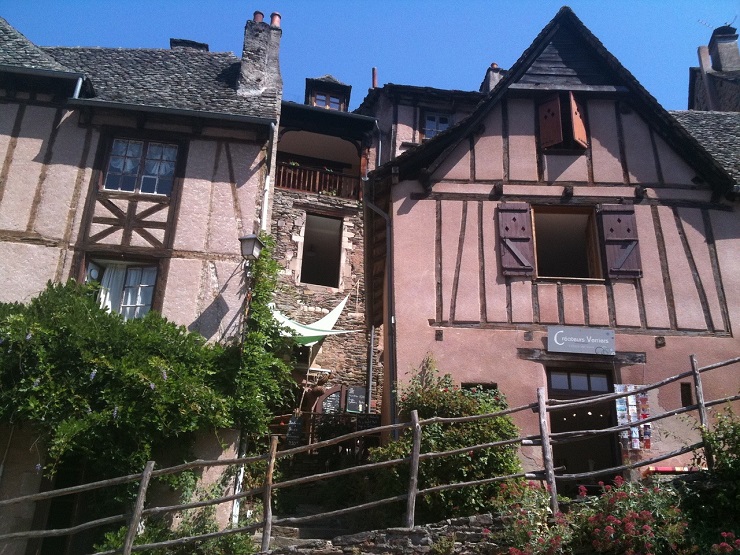
Commercial Property Investments
Investors interested in signing or renewing commercial property leases in France “should be wary of changes to the legislation governing agreements,” warns Aline Divo, a lawyer at the international firm of CMS.
Especially with hotel leases, she adds in a recent article, single-purpose properties are “far more favourable to the lessor than that of [for example] 9-year hotel leases for multi-purpose premises, both regarding the term and the renewal rent.”
The global law firm of Norton Rose Fulbright has a really comprehensive guide to investing in commercial property in France. It examines everything from the initial offer letter and usual conditions through to the deed of sale and transfer of title. The guide looks at both asset and share deals; how lawyers differ from notaries in terms of their roles as legal advisers; and the different types of ownership and leaseholds in addition to sections on rent, financing, and taxes.
Advice From Experts
For general pointers to investing in property in France, take a look at what the team at Creme de Languedoc has to say.
For instance, they say In most cases buyers should avoid selling too quickly after the purchase (unless it’s specifically a renovation flip). In fact, the advice here is to “allow at least five years to recoup your buying costs.”
The case for waiting is especially important “if you’ve invested in a property leaseback scheme in France and are selling up before the contract (usually 9–11 years) and the 20 year qualifying period for the 19.6% VAT discount has run its course.”
Sylvia Edwards Davis, a contributing editor at FrenchEntrée, has some sage advice from several estate partners and property professionals. One bit of advice regarding French property pricing is especially noteworthy: Not only should you research and view enough properties to be able to judge a fair price, but you also need to be aware of how estate agents show those prices.
“For example, the owner might want 250,000 EUR for his house,” Davis writes. “Agent A charges 5% and so will put it in his window for 262,500 EUR, while agent B charges 10% and will be marketing it at 275,000 EUR.”
Fine & Country agents share what they look for when appraising a property, but as Matthew Craker puts it: “Appraising a home isn't an exact science. At the end of the day, a home is only worth what someone is willing to pay for it.”
Guy Watson-Smith adds: “Market value is the key word. Sellers want to feel that they achieve ‘above market value,’ and buyers want to feel that they have bought well, or ‘below market value,’ so it is a difficult balance.”
Another point to remember, Davis says, is “that the notaire acts for the state, and if you want your own legal representative you are entitled to use one.”
If you're investing in French property read our article where CurrencyFair spoke to 14 experts on French property law.
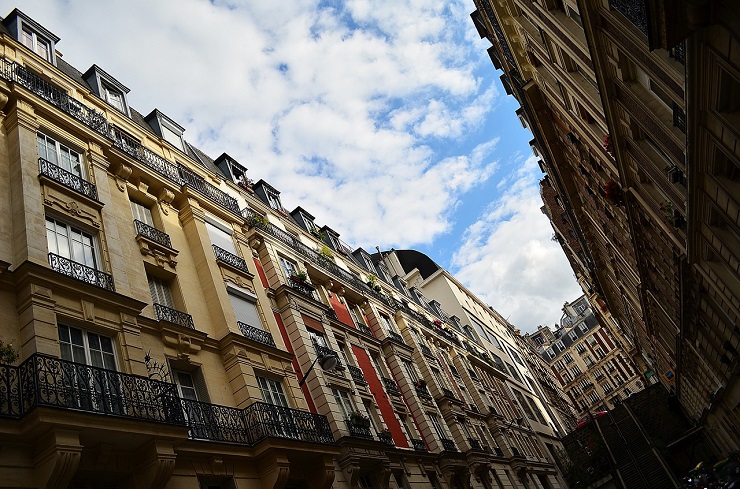
Taxes, Taxes and More Taxes
If it’s tax advice rather than real estate help you need, writes Frederic Mege, a partner at the international law firm of Gowling WLG, a French tax lawyer is essential.
And there can be a lot of tax questions regarding things such as stamp duty, capital gains tax, wealth tax, and inheritance tax. If you are buying property through a foreign company, then the matter of corporate tax arises, and there’s, of course, income tax for all rental properties.
“In addition,” Mege continues, “if the company or the entity in question is situated in a country which has not signed an appropriate Tax Treaty with France, an annual tax of 3% on the market value of the French property becomes payable.”
Taxes are at the heart of the advice from David Shaw of Your Investment Property. While Shaw is writing from an Australian perspective, his questions are pertinent to any foreigner investing in French property, and include:
-
Where do I pay tax on a net rental income?
-
Do I get taxed in either country or just [my home country]?
-
Can a foreign net rental loss be offset against other [home country] income?
-
What are the tax implications if I sell the property?
-
Are there any tax implications for my estate if I still own the property at death?
Understanding the Property’s Boundaries
The team at English Speaking Real Estate Agent (ESREA) France recommends looking into two boundary-related issues:
Obtain a survey (called a Plan de Bornage) from the seller to verify the boundaries and usage of the property.
Check the future planning for the area as well as access to the property.
“You need to confirm your access to the property,” writes the ESREA team. “Is the access actually on your land? Does anyone else have access to your property to get to their property? Consult your notary.”
Successful Investments
Pierre & Vacances is a company that builds and manages tourist residences in France and elsewhere in Europe. They’ve found that a property’s sustainability helps make it a profitable real estate investment. Using environmentally friendly and durable materials for the build and making the unit energy efficient means there’s less upkeep and expense in the long term.
Tenants will lease a sustainable property over one that can’t boast those features, which can also affect its profitability.
The real bottom line to successfully investing in property is achieved, writes Basil Demeroutis, managing partner at the investment advisory firm FORE, by understanding its purpose. He calls real estate a “ballast” in a portfolio and says any property investment should be viewed as:
-
a long-term store of value,
-
inflation protected income, and
-
a mechanism to transfer wealth from generation to generation (often tax-efficiently)
CurrencyFair looked at EU inheritance laws here.

Go for the Grape
If after all that sage advice about ballasts and tax implications you’ve still got your heart set on buying a vineyard in the south of France, Rory Ramsden at HomeHunts says “the real trick is to know exactly how you are going to sell your wine.”
You may sober up when you learn exactly what is included in a vineyard purchase: “The buildings, the land, the equipment (such as the vinification plant) and the business (the clients, and so on). You will also need to consider if the vineyard has sold all its stock – if it has, this is a good sign. However, you will be expected to buy the wine that is in the vats/barrels at the value that it has today — this is an extra cost to be funded.”
If you still decide that winemaking is for you, your best bet as an investor to to look for an under-performing vineyard, Ramsden writes at France Property Magazine. Ramsden says your search “should be more about the terroir, the quality of the wine and the potential to improve the ROI of the business.”
(We had to look it up, too. Wine Folly describes “terroir” as “how a particular region's climate, soils and aspect [terrain] affect the taste of wine.”)
Voilà!
images by: Unsplash, anneningrat, Filip Dukanic, shaymen99



%20(1).jpg?width=600&name=sebastian-herrmann-KvAzgHvM_-A-unsplash%20(1)%20(1).jpg)
.jpg?width=600&name=christian-allard-RlNXFBkOU2k-unsplash%20(1).jpg)
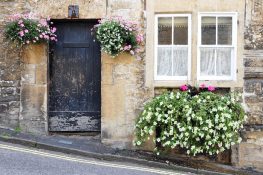
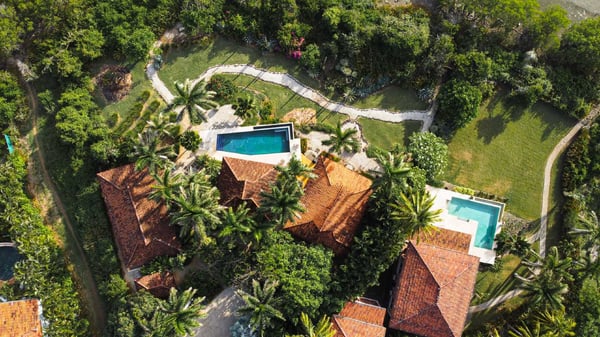

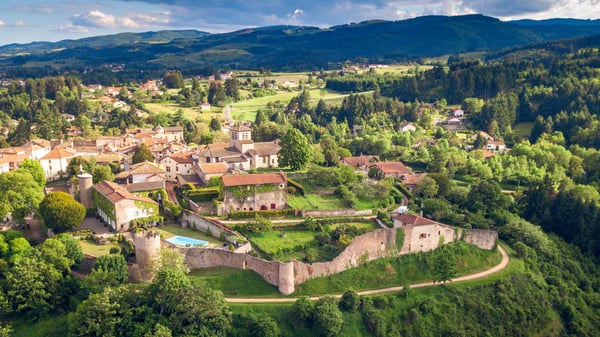

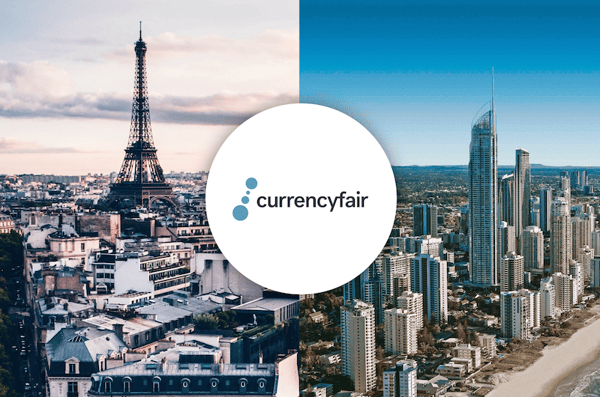
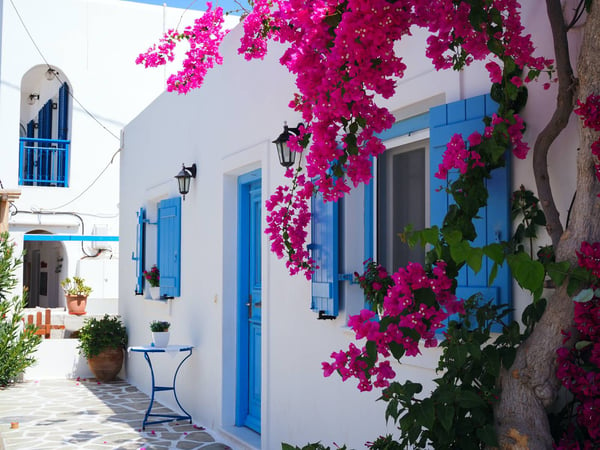
.jpg?width=600&name=ilnur-kalimullin-CB0Qrf8ib4I-unsplash%20(1).jpg)